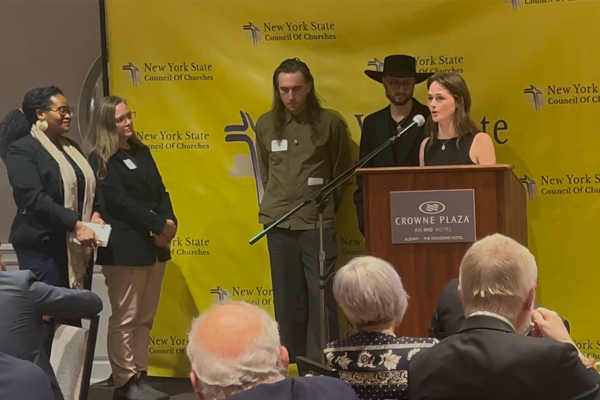
300 Miles
Flushing Meeting's John Choe on the Quaker Solidarity Walk to Washington and the historic Flushing Remonstrance.

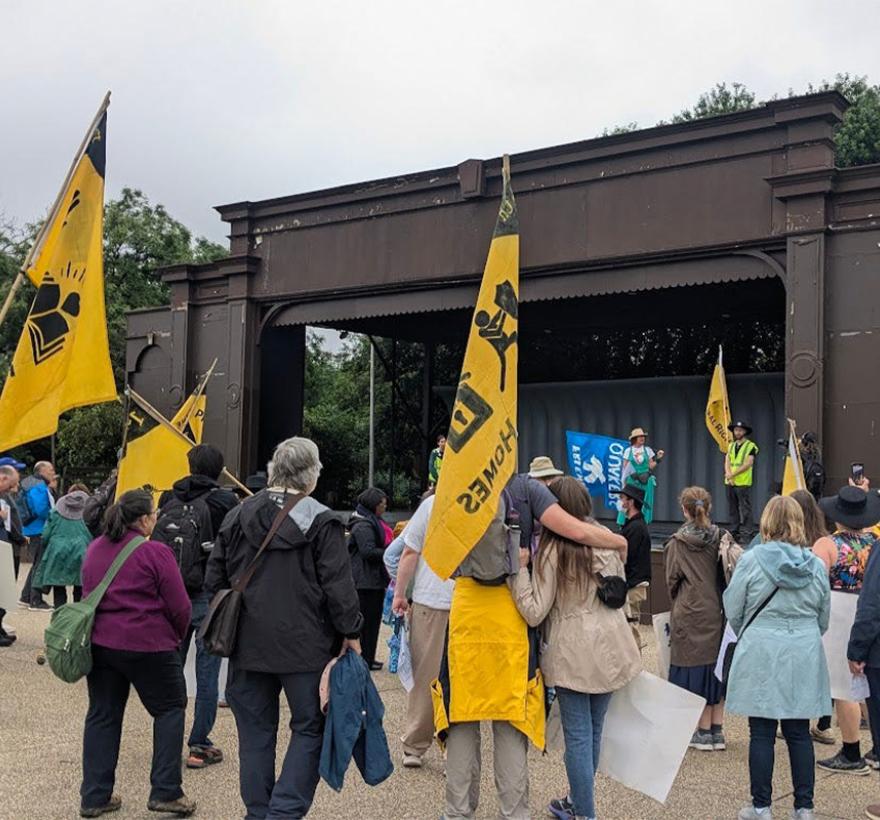

Quakers walked 300 miles over eighteen days from Flushing NY to Washington DC to deliver copies of the 1657 Flushing Remonstrance to elected officials as part of an interfaith movement to hold our government accountable. At the end of the Walk, we worshipped and nailed a copy of the Remonstrance on a door at the National Mall, then headed off to persuade our elected officials to do the right thing.
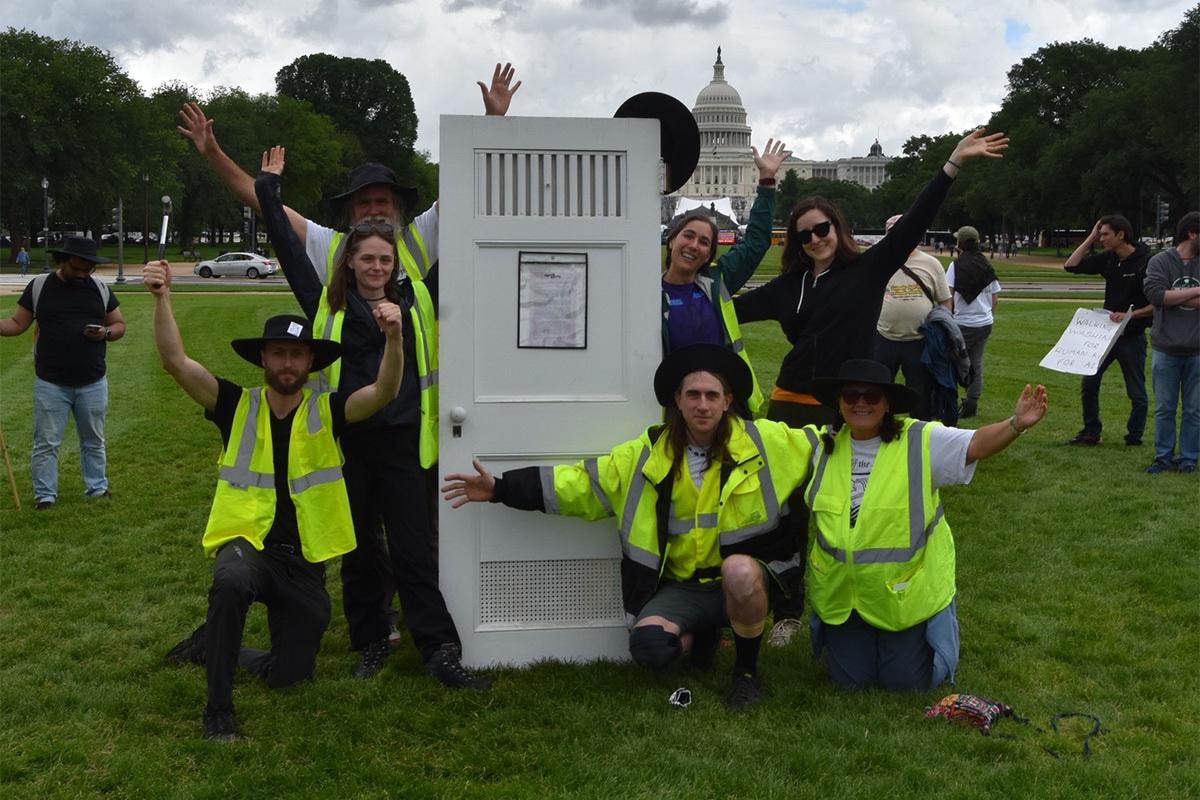
The Remonstrance, which was signed by the farmers of Flushing on December 27, 1657, welcomed Quakers, Muslims, Jews and other people of faith to our community (resisting threats of persecution by an authoritarian government) and was the basis of the First Amendment to the United States Constitution. More importantly, the Remonstrance was a statement of solidarity (as none of the signers were Quaker, Muslim or Jewish) – the successful struggle for religious freedom symbolized by the Remonstrance created the space for Quakers to establish themselves and later organize for the abolition of slavery, for women's equality and suffrage, for public education and other movements for social justice – in turn, creating space for other oppressed groups to fight for liberation (their own and that of others). The Remonstrance exemplifies the concept of “paying it forward” – an idea still relevant in today’s divisive political climate.
In addition to reminding elected officials of the principles on which our country was founded, we demanded that our national budget shift resources from war and militarism towards addressing the many critical needs of our people: food, healthcare, housing, education and jobs. Those of us from New York went to speak at the Senate offices of Chuck Schumer and Kirsten Gillibrand. Some of us had the opportunity to speak about our experiences to emphasize the urgency of our demands.
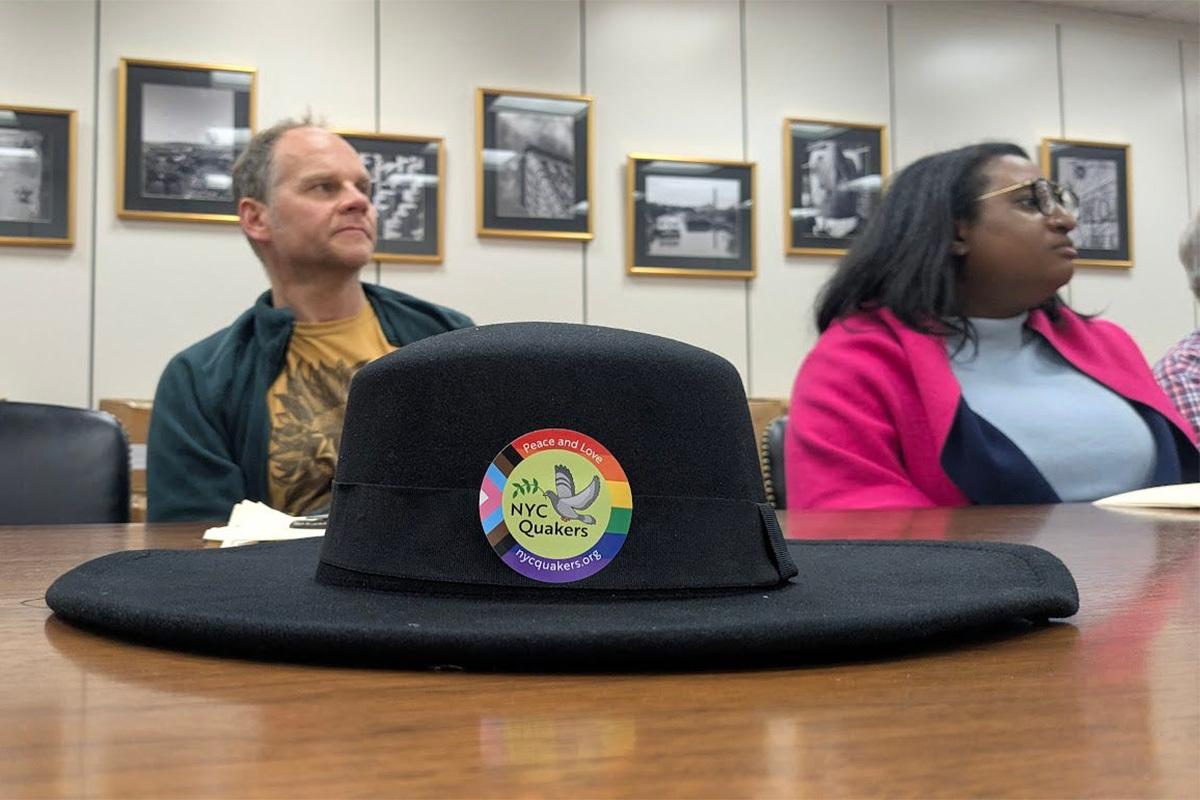
Here is the story I told during our visit to Capitol Hill:
During the pandemic, I volunteered at a food pantry in downtown Flushing that was feeding more than 10,000 families every week. The line to receive our box of groceries extended for several blocks along Prince Street, 40th Road, Main Street, and 41st Avenue. New Yorkers representing the diversity of our city lined up for hours one behind the other, families with children as well as senior citizens – many had lost jobs or had been evicted from their homes. One day, we found a man who had passed away overnight outside our pantry. Like many Asians, he had taken his shoes off and carefully placed them outside his cardboard box before entering. I never found out his name, but think about him often. As an American, I cannot understand how we can allow our elders (who have sacrificed so much for us) to die alone on our streets – in the richest city, in the richest country in the world. I refuse to accept that we cannot do better.
Stories are critical to social change. For those of us who participated in the Walk, it was an important reminder that we all have stories to tell and a voice in our collective future.
— John Choe, May 25, 2025
News

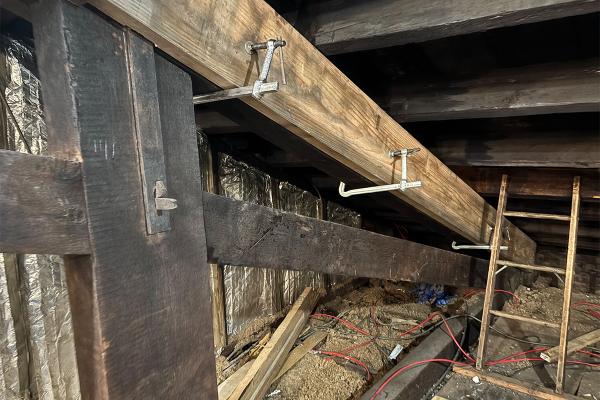
Maintenance and Improvements to NYC Quaker Buildings
